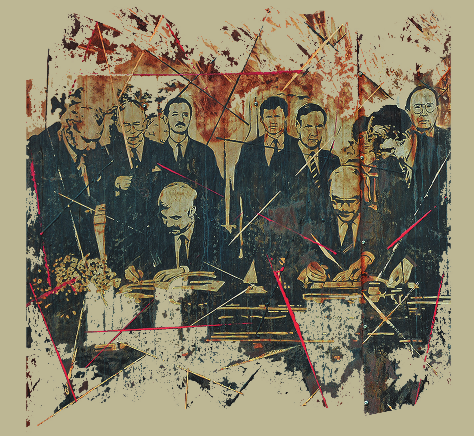
We all have experienced this situation: we make an effort, we try to create the best possible quality, but the recipients of our actions seem not to notice it. But one mistake is immediately noticed, and then pointed out, undermining previous achievements.
This mechanism occurs in our interpersonal and professional relationships, as well as in the public and political spheres. I draw attention to it because I have the impression that Polish-German relations are perceived in a similar way. We get excited when something bad happens, but we stop paying attention to the fact that the "miracle of reconciliation" (Władysław Bartoszewski) is happening right in front of our eyes.
Klaus Zernack, a German historian who has greatly contributed to changing the approach of German historiography to Poland and to Polish-German relations, repeated that it is difficult to find in the history of the nations of Europe such a great estrangement as was shared by Poles and Germans after the Second World War. It is difficult for us today to imagine the scale of hostility, pain, fear, contempt and hatred that divided our ancestors only a few decades ago. Neither one nor the other believed that Poles and Germans could one day be good neighbours, partners and friends.
It must be remembered that the enmity between Poles and Germans did not arise from some accidental neighbourly quarrel. It was born out of the conviction that the other nation was a fundamental obstacle to their own national interests. The Germans believed that they could only be a truly great nation if they destroyed Poland. The Poles were convinced that they could only enjoy national freedom when Germany fell. Such attitudes dominated and poisoned mutual relations from the middle of the 19th century. Their most terrible, but by no means the only, manifestation was the Nazi crimes against the Poles during the Second World War.
It was not until the 1960s that the first signs of a change in thinking emerged. The pioneers of reconciliation began to look for ways to overcome the "fatalism of hostility" (Stanisław Stomma) and set in motion a very difficult, arduous and long-lasting process of rapprochement, an important stage of which was the Reconciliation Mass at Krzyżowa in November 1989.
Looking at the development of Polish-German relations over the last two hundred years, it has to be said that something remarkable has happened in the last few decades. Most Poles and Germans have come to believe in the real possibility of overcoming this fatalism. They understood that both would succeed not by fighting each other, but by working together in solidarity. There was a change in thinking about the other, about relations with them, but also about oneself. Identity, of which Polono- or Germanophobia had previously been an important part, has been transformed. We have therefore succeeded in doing something very difficult and historic, which has changed Poland, Germany and Europe, because without Polish-German reconciliation, European integration would not have been possible.
In June 2021, we will celebrate the 30th anniversary of the signing of the Treaty of Good Neighbourhood, a landmark document for the further development of mutual relations. Surely both governments and numerous institutions will organise anniversary celebrations, politicians and witnesses of the time will point to the key role of the treaty, researchers will analyse the state of its implementation. But do we really appreciate this document? Do we realise how long and difficult the road to the Treaty was, and how much has subsequently become possible thanks to it? Can we genuinely rejoice at how the German-Polish neighbourhood has developed?
Of course, German-Polish relations are not idyllic. There are problems, tensions and conflicts, which in recent years have become more frequent again and go deeper than just a few years ago. Representatives of the Polish government and pro-government media dishonestly and irresponsibly invoke the old stereotype of the German enemy to manage public emotions. German politicians with a persistence worthy of a better matter are implementing the selfish Nord Stream project, weakening mutual trust. But - and here I come back to the thought from the beginning of this text - do we want to perceive our mutual relations mainly through the prism of mistakes, wasted opportunities and conflicts? Or are we rather able to see the enormous good that has come and continues to come from Polish-German cooperation?
If anyone has problems with this, we invite you to Krzyżowa - currently virtually (we encourage you to visit our website, social media, read the newsletter), and later in reality. Here you will see the fruits of the treaty, the effects of the reconciliation process: cooperation based on respect and trust, joint projects, creation of a new Europe based on the values that unite us - citizenship, respect, solidarity, readiness for dialogue and cooperation, responsibility for a common future.
This year, in addition, we invite you to a series of events which we are organising in order to celebrate and appreciate the treaty of 30 years ago and to evoke its spirit again. Let us celebrate together and rejoice in what has been achieved!
Dr Robert Żurek
Managing Director, Member of the Management Board
Krzyżowa Foundation for Mutual Understanding in Europe



